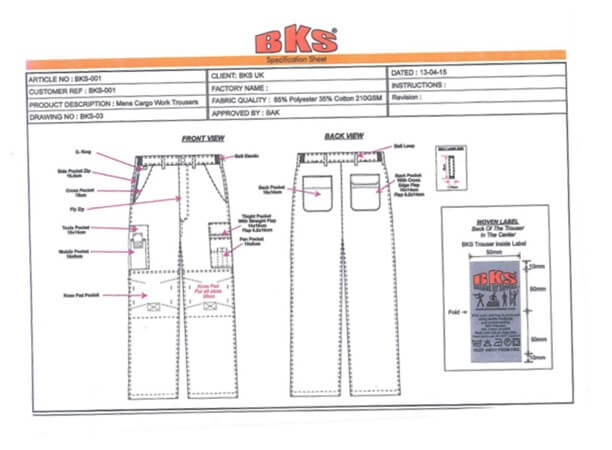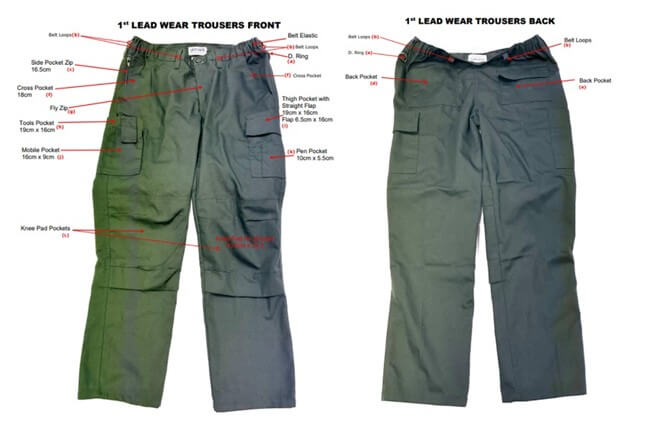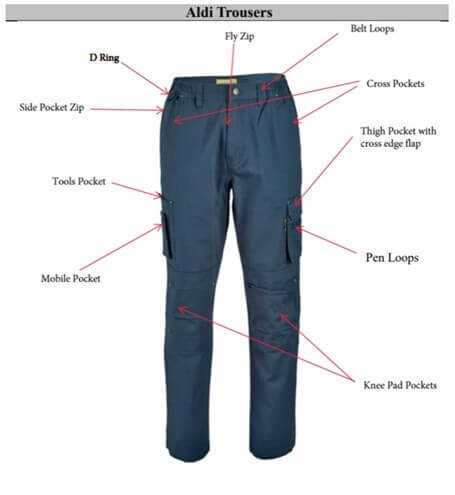
UK: Court rules no infringement of ‘copycat’ cargo trousers
In KF Global Brands Limited v Lead Wear Limited, Kamrul Hassan, Mohammed Abdul Kader [2023] EWHC 1303 (IPEC), the Intellectual Property Enterprise Court ruled that unregistered rights in the design of a pair of cargo trousers did not subsist and so were not infringed.
Facts
The Claimant supplied cargo trousers, in which it claimed a UK unregistered design right. The Defendants procured the manufacture of a similar design that the Claimant said to be infringing of its unregistered design rights.

Figure 1: The Claimant’s design drawing

Figure 2: The Defendant’s cargo trousers
The Defendants argued that no design right subsisted in the Claimant’s cargo trousers due to lack of originality. The Defendants drew the court’s attention to similarities between the Claimant’s design drawing and a pair of £8.99 cargo trousers sold by Aldi prior to the date of the Claimant’s design.
The size, fastening and positioning of the pockets on the Aldi trousers’ knee pads, thighs, and sides, were identical to the Claimant’s design drawing. The only notable difference was that the Aldi trousers featured loops on the thigh pockets, whereas the Claimant’s design opted for a smaller pen pocket. The Claimant also conceded that a pair of the Aldi trousers had in fact been in the room when creating its design.

Figure 3: The Aldi trousers
Findings of the court
The switch from pen loops to pen pockets was insufficient to convince the judge that the Claimant’s design was more than a mere copy of the Aldi trousers. Germane to this conclusion was the principle that a minor change to an existing design, such as that from pen loops to pen pockets, cannot give rise to a fresh design right in the entire design. A new design right can only arise in the original parts. If the creator of the new parts also owns the rights to the overall design, then a design right arises in the existing design incorporating the minor changes, but with the same period of protection as the original. This is to prevent “evergreening”, the use of small changes to prolong the period of protection for the unregistered design. Consequently, the judge held that no unregistered design right subsisted in the Claimant’s design.
Key takeaways
Since no rights subsisted, they could not be infringed. In any event, there was a territorial issue in that the acts of alleged primary infringement took place in Bangladesh and not the UK. The Claimant applied at trial to amend their particulars of claim to include the assertion that the acts of primary infringement were actionable under the laws of Bangladesh as under the laws of England. The judge found that this application to rely on common law rules of jurisdiction came extremely late and was unfair to the Defendant. It was therefore rejected.
Changing minor features of an existing design does not produce a new design nor reset the clock on the period of protection for the underlying design.
Territorial issues in relation to where certain acts have taken place should be considered at the outset of issuing a claim and not left until trial to seek amendment.








